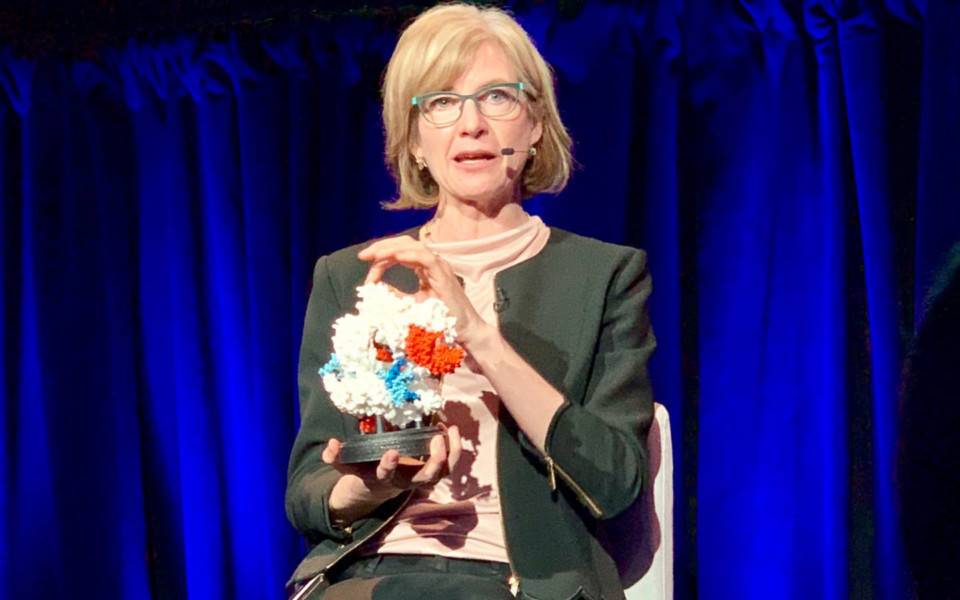Heroes and Villains: CRISPR Debate Opens 2019 World Science Festival
The co-founder of the World Science Festival, Brian Greene, opened the 2019 festival on Tuesday evening by noting the capacity of our species to take hold of a process that was driven by random chance for four billion years. That process, of course, is the microbial immune system known as CRISPR, which has been adapted since 2012 to become a powerful and highly accessible genome editing tool.
In front of a capacity crowd at the Simons Foundation headquarters in New York, CRISPR pioneer Jennifer Doudna, PhD (University of California Berkeley), bioethicist William Hurlbut, MD, PhD (Stanford University), and futurist/author Jamie Metzl, PhD, discussed the medical and ethical ramifications of CRISPR-based genome editing.* Much of the debate focused on the actions of He Jiankui, the Chinese scientist who stunned the world last November by overseeing the births of gene-edited twins.
Most scientists go into science “because we don’t seek the limelight, we don’t court public attention,” Doudna said. At least that was her frame of mind until reporters started calling her in 2014 about reports of genome editing in monkey embryos using CRISPR, forcing her to contemplate the ethics of her research tool. “If people are doing this in monkeys, they’ll do it in human embryos,” she realized. While she didn’t particularly want to get involved in this discussion, she concluded it would be irresponsible not to do so.


